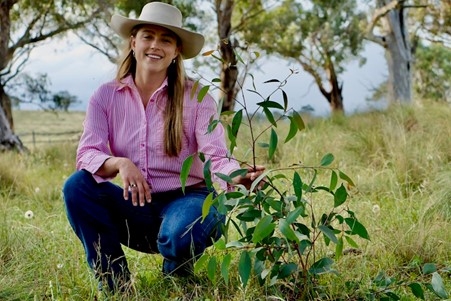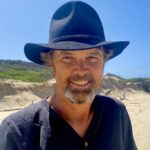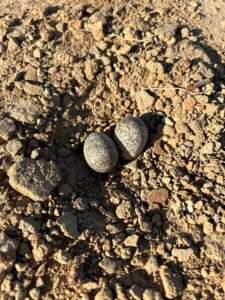Meet Nakita Thackwray:
Nakita Thackwray, Founder of Carbon Stock, is a young leader in sustainable agriculture. Her commitment to Landcare and environmental stewardship drives positive impacts nationally.
Nakita is an emerging young female leader within the field of Australian sustainable agriculture. Her unwavering commitment to Landcare and environmental sustainability, combined with her extensive experience, continue to achieve positive impacts within both her local Monaro community and the broader Australian agricultural landscape.
Nakita firmly believes that by reducing knowledge barriers we can provide an increase in uptake of projects. As a member of Upper Snowy Landcare, she actively engages in educational programs, field days, and on-ground projects, collaborating with landholders and management agencies to preserve the natural environment in the region. This hands-on involvement enhances her ability to guide and support landholders, ensuring the effective implementation of sustainable agriculture and Landcare practices.
Illustrating her dedication to Landcare and advocacy for the Landcare approach, alongside Upper Snowy Landcare, Accounting for Nature, and the Landcare Farming Program, Nakita played a crucial role in coordinating a Natural Capital Accounting workshop in Cooma in 2023.
This workshop, designed to assist landholders on their natural capital journey, received overwhelmingly positive feedback, underscoring Nakita’s commitment to sharing knowledge and enhancing capacity within the agricultural community.
Nakita’s initiatives have also focused on forging connections at a national level to benefit her local community. She has facilitated numerous collaborations between the agricultural and environmental sectors, presenting at prestigious conferences such as the National Carbon Farming Conference and networking at events like the Northern Territory Cattlemen’s Conference, the ALCA conference and AgQuip. By leveraging these connections and sharing her learnings, Nakita brings valuable insights and expertise back to her home region of the Monaro, enriching landcare efforts and fostering a culture of collaboration and innovation.



